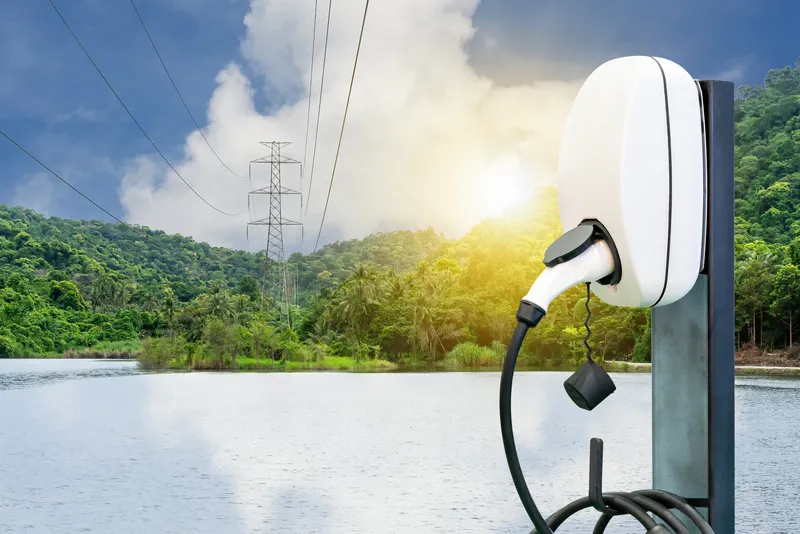The European Union has launched an infringement procedure on Germany’s introduction of a law introducing a road charging scheme for cars. At the same time, it passed a law ensuring that vehicles registered in Germany benefit from a deduction of the road charge from the annual vehicle tax bill. This will lead to a de facto exemption from the charge for cars registered in Germany.
Commissioner for Transport Violeta Bulc said: "A toll system can only be compliant with European law if it respects the fundame
June 19, 2015
Read time: 3 mins
The 1816 European Union has launched an infringement procedure on Germany’s introduction of a law introducing a road charging scheme for cars. At the same time, it passed a law ensuring that vehicles registered in Germany benefit from a deduction of the road charge from the annual vehicle tax bill. This will lead to a de facto exemption from the charge for cars registered in Germany.
Commissioner for Transport Violeta Bulc said: "A toll system can only be compliant with European law if it respects the fundamental Treaty principle of non-discrimination. We have serious doubts that this is the case in the final text of the relevant German laws. We are now acting swiftly to clarify these doubts through an infringement procedure in the interest of EU citizens."
Since this measure was politically announced in 2013, the Commission has engaged in an intensive open discussion with the German authorities on its compatibility with European law. The Commission is of the view that the new road charging scheme for cars, which is also occasionally referred to as the ‘toll for foreigners’ burdens EU-foreigners more than German users. Systems in place in other EU countries such as Austria or Slovenia do not feature such discrimination, which is also a result of successful Commission action ahead of the introduction of road charging scheme for cars.
The Commission's main concerns are on indirect discrimination based on nationality, based on two factors. The first is the fact that, effectively, only German users will not pay the road charge because their vehicle tax bill will be reduced by the exact amount of the charge. The second is that the price of short term vignettes, which are typically bought by foreign users, is disproportionally high.
The Commission is advocating proportional, distance-based user charges which better reflect the user and polluter pays principles to support infrastructure maintenance. The Commission 2011 White Paper on transport recommended the restructuring of transport charges and vehicle taxes for exactly this purpose by way of providing pertinent price signals to users.
The road charge adopted by Germany is not in line with the aims of the 2011 White Paper on transport because it is not proportionate to how often roads are actually used.
The German authorities now have two months to respond to the arguments put forward by the Commission in the letter of formal notice. Should the Commission consider that the reply to the letter of formal notice is not satisfactory, it will consider addressing a Reasoned Opinion to Germany.
Commissioner for Transport Violeta Bulc said: "A toll system can only be compliant with European law if it respects the fundamental Treaty principle of non-discrimination. We have serious doubts that this is the case in the final text of the relevant German laws. We are now acting swiftly to clarify these doubts through an infringement procedure in the interest of EU citizens."
Since this measure was politically announced in 2013, the Commission has engaged in an intensive open discussion with the German authorities on its compatibility with European law. The Commission is of the view that the new road charging scheme for cars, which is also occasionally referred to as the ‘toll for foreigners’ burdens EU-foreigners more than German users. Systems in place in other EU countries such as Austria or Slovenia do not feature such discrimination, which is also a result of successful Commission action ahead of the introduction of road charging scheme for cars.
The Commission's main concerns are on indirect discrimination based on nationality, based on two factors. The first is the fact that, effectively, only German users will not pay the road charge because their vehicle tax bill will be reduced by the exact amount of the charge. The second is that the price of short term vignettes, which are typically bought by foreign users, is disproportionally high.
The Commission is advocating proportional, distance-based user charges which better reflect the user and polluter pays principles to support infrastructure maintenance. The Commission 2011 White Paper on transport recommended the restructuring of transport charges and vehicle taxes for exactly this purpose by way of providing pertinent price signals to users.
The road charge adopted by Germany is not in line with the aims of the 2011 White Paper on transport because it is not proportionate to how often roads are actually used.
The German authorities now have two months to respond to the arguments put forward by the Commission in the letter of formal notice. Should the Commission consider that the reply to the letter of formal notice is not satisfactory, it will consider addressing a Reasoned Opinion to Germany.









